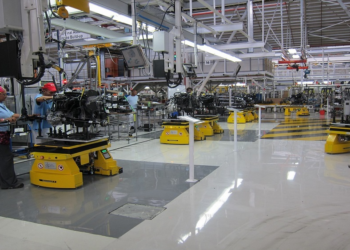Comfortable retirement is the desire of many and almost all retirement services company websites have calculators that will give you an idea of how much you are likely to have at retirement based on certain actuarial assumptions. More often than not, things do not end up the way the calculators foretell. After-all, we are living in a world that is less than perfect, a world where projections and “prophesies” are shrouded in various “ceteris paribus” assumptions. Be that as it may, there are certain things that are a dictum, almost self-evident, that a retirement focused investor should do or know about to ensure comfortable retirement. Some of them are as follows:
Expect and plan to live longer.
Advancement and knowledge in medical science has increased and continues to increase with technology. Doctors are getting not only better equipped to carry out medical diagnostics, the pharmaceutical companies are also advancing in the discovery and manufacturing of more potent medications. The result of all these has been that people now live longer than before. It will not be uncommon to see healthy 65-year-olds living well into their 80s or 90s.
The implication of this is that retirees may need 30 or more years of retirement income to take care of their increased longevity arising from the facts noted above. The fact that you may live longer than expected implies that you will need more money than expected at retirement. So the earlier you factor this possibility into your retirement and personal financial planning, the better you will be ready to weather the storm when it comes. One way to do this is to use some of your retirement savings account (RSA) or Retiree Fund balances to purchase an annuity. By so doing, you will create a simple and efficient stream of income payments that are guaranteed for as long as you live.
Inflation is Alife and Well, prepare for it
Inflation is a way of our economic life, it is here to stay and does not seem to be going away. All that the government can do is to try to reduce its growth. Inflation impacts your retirement income because it has the tendency to eat away at the purchasing power of your money over time. By reducing the purchasing power of your retirement income, inflation invariably increases the future costs of goods and services. For example, a N1,000,000 RSA balance today will be worth N609,531 in 25 years’ time with an inflation rate of 2% and N477,606 if inflation rate is 3%. At the current rate of 13.7%, it will be worth N40,363.46 in 25 years’ time.
The fact that a relatively low inflation rate can have a significant impact on a retiree’s purchasing power, calls for a constant eye on it and a proactive plan to reduce its impact on one’s retirement income.
Unfortunately, Nigerian financial system does not have such instruments as Treasury Inflation-Protected Securities (TIPS). With TIPS, the principal increases with inflation and decreases with deflation, as measured by the Consumer Price Index. When a TIPS matures, you are paid the adjusted principal or original principal, whichever is greater. In the absence of TIPs, people can invest in growth-oriented stocks or stock mutual funds that are in line with their risk tolerance and appetite. Look for mutual funds with good track record with above inflation rates of return.
Keep a Constant eye on your investments
Granting the increase in longevity and impact of inflation, it behooves the potential retiree to position their investments for growth. Many retires, for fear of losing their nest egg, undertake an overly conservative investment strategy. Yours truly is one of such people. While the preservation of the corpus of one’s income is desirable, a too conservative strategy exposes your portfolio to the erosive effects of inflation while limiting the long-term upside potential that diversified stock investments can offer, and can diminish how long your money may last. In the same vain, an overly aggressive strategy can expose you to undue risk in volatile markets. It pays therefore to pursue a strategy that aims at keeping the growth potential for your investments without too much risk. This entails having investments with asset allocation strategies that blend stocks, bonds, and short-term investments to achieve different levels of risk and return potential. It means constantly reviewing the asset allocation of your RSA or mutual funds as well as their monthly performance with a view to knowing the right time to rebalance your portfolio. Consider those RSA or mutual funds that are not only diversified enough but are in line with your risk tolerance and investment horizon. Keep an eye on the risk return profile of your investments.
See Your Savings Account for what they are
There is the temptation to de-save, especially during hard economic times. Rather than de-saving to maintain the status quo in terms of your living standard, it is better to cut costs by trimming the non- essentials. During retirement, the speed at which one spends one’s savings determines how long such savings will last. Spending one’s savings too rapidly can also put the retirement plan at risk by making it insufficient in the long run. Therefore, it may be better for retirees to use conservative withdrawal rates by using their monies for particularly essential expenses. According to research, the ideal is to use a withdrawal rate of 4% to 5%.
Take Advantage of Tax Benefits of Retirement savings:
Find out if there are any tax advantaged retirement savings programs available to you and take advantage of it. If your RSA savings is pretax, the implication on is that the government is helping you save for retirement if you take advantage of it, if you do not, you lose out on that government assisted savings. Save as much as you can by cutting out on those luxurious expenses that you can do without. There is no need building a 10 bed room 5 bath-room state of the art mansion when a 3-bedroom duplex is all you need, only to suffer at retirement except if such a building will generate income now or in the future. If two cars are sufficient for your need, do not buy a fifth car just to impress, instead, save the money for the rainy day. It will surely come and you will surely need it when you retire.
Conclusion
Remember that it took years to build your retirement savings, it should not take days or months to spend it all. If you proactively think along the noted issues above, you will most likely not out live your retirement savings. For data on Nigerian pension funds visit www.mutualfundsnigeria.com



















